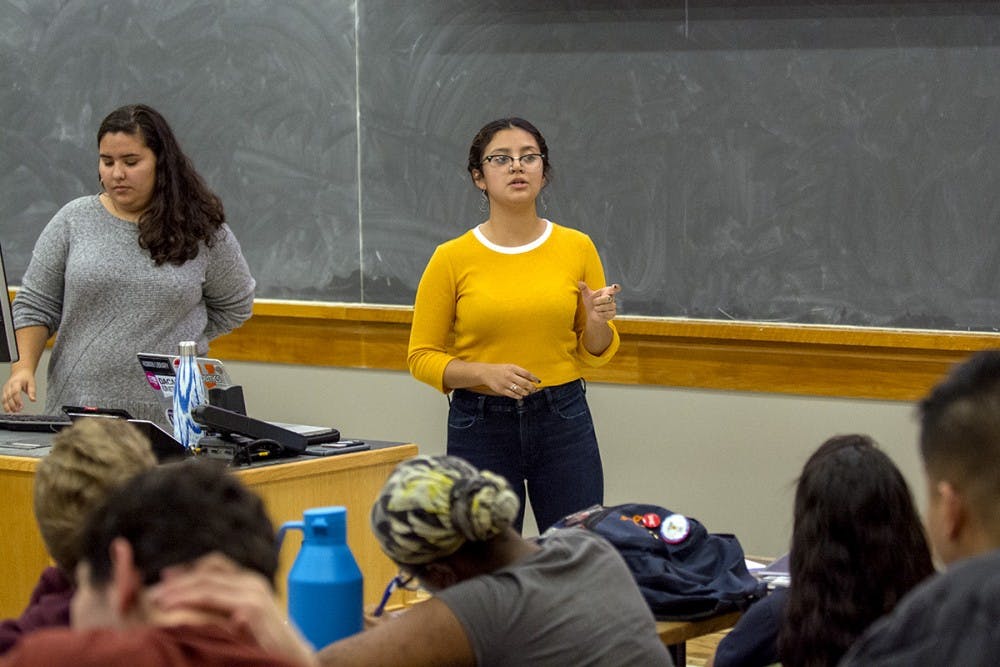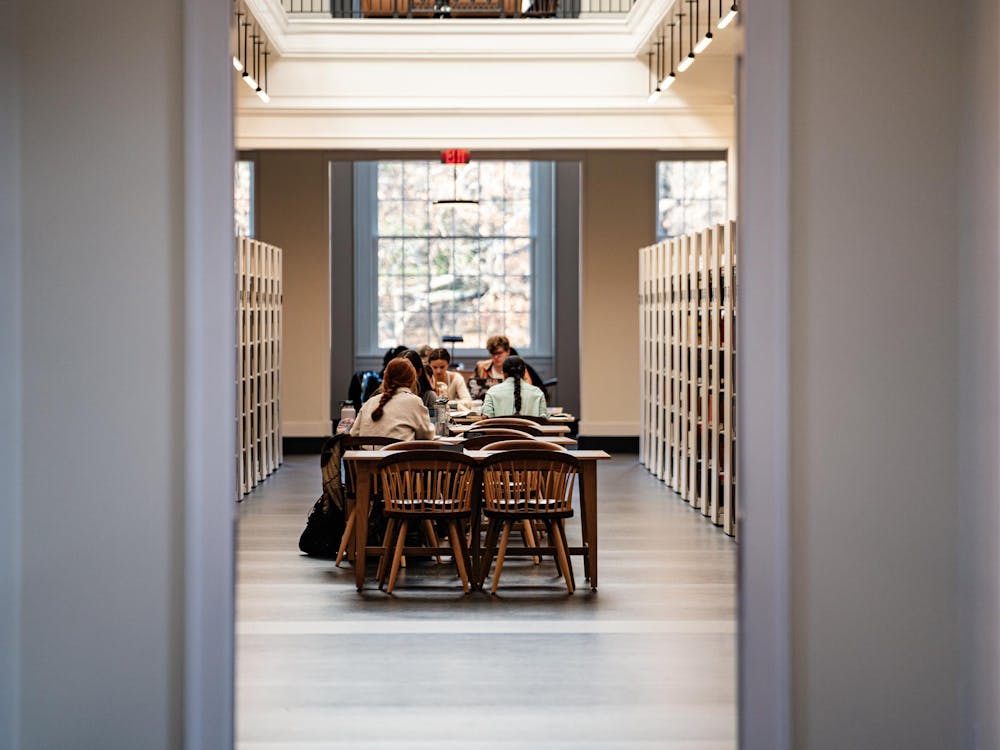DREAMers on Grounds — with co-sponsorship from the Latinx Student Alliance and Central Americans for Empowerment at U.Va. — hosted their general body meeting Monday evening to discuss the Central American caravan crisis.
Attendees at the event, entitled, “A Mile of People: Deconstructing the Caravan Crisis,” met to discuss the current state of asylum seekers in the caravan as well as to dispel misconceptions that surround the caravan.
The event came in light of a massive caravan that has formed in Central America over the last month, consisting mainly of Honduran men, women and families. Many face grave danger in their country and are petitioning for asylum in the U.S. or are fleeing poverty.
“They have to do it,” Johanna Moncada Sosa, a third-year College student and founder of Central Americans for Empowerment at U.Va., said in an interview. “It was not necessarily a choice because there were conditions that forced them to leave. The American dream is secondary to them leaving the Honduran nightmare. This is their chance to search for survival because it is not what they can get in Honduras.”
According to the United Nations Refugee Agency, around 7,000 people could be travelling in the caravan, although an exact number is not known. The caravan began as a social media campaign in early October and has drawn immense news coverage since leaving from San Pedro Sula, Honduras, Oct. 12 and quickly gained a widespread following.
As of Sunday, the group was travelling the “route of death” towards Cordoba, Mexico, which has been considered the most dangerous part of the journey. However, the U.S. border is still hundreds of miles away. President Donald Trump has publicly condemned the asylum seekers and has threatened to cut aid to Central American governments, send troops to the U.S. border, jail the participants living in tent cities and have U.S. troops fire on anyone throwing rocks.
Additionally, Trump could refuse entry to Central Americans by citing national security concerns or deny asylum seekers humanitarian aid on U.S. soil.
Central Americans for Empowerment at U.Va. — colloquially known as CAFE — was founded three weeks ago in response to the growing caravan crisis. Sosa said they hope to obtain CIO status in the coming year.
“CAFE was created out [of] a reaction out of what was happening with the caravan,” Sosa said. “Personally, I felt like the organizations around Grounds hadn’t addressed it yet.”
CAFE’s mission, Sosa said, is to create an inclusive space for students to learn more about Central America and to be a collective voice through direct action and advocacy.
The event was co-organized by DREAMers on Grounds and the Latinx Student Alliance to help welcome CAFE as an organization on Grounds and to support Latinx endeavors.
“We all decided to have this collaboration as a general body meeting just to let people know what is happening because the updates on the caravan, this specific one, is changing every single day — there are updates every single day,” Sosa said. “It is hard to keep track of what’s going on.”
The general body meeting first discussed the history behind the caravan crisis, starting with the June 2009 coup d’etat of Honduran President Manuel Zelaya and the subsequent government corruption and increase in violence that occurred in Honduras.
Next discussed was the safety and economic reasonings for fleeing Honduras, as well as the current status of asylees. Particularly noted was the high instances of violence and rape.
“It is very dangerous for women and children in particular,” Kathy Sobá, a fourth-year Curry student and DREAMers on Grounds president, said in an interview. “Many women are facing rape and murder that are not being addressed by the governments because there is a lot of destabilization in those countries.”
However, it was also noted that traveling in the caravan itself was only slightly less dangerous as compared to conditions in Honduras. According to the presentation, asylees often face violence while travelling through Mexico and women are particularly susceptible to sexual assault.
Also included in the presentation was Trump’s military response to the asylum seekers and the qualifications to obtain asylum.
The final portion of the presentation was aimed at dispelling misconceptions surrounding the caravan. These included reasoning why asylees could not take refuge in Mexico, the economic benefits to having immigrant taxpayers and the legality of seeking asylum in the U.S.
“The asylum seeking caravan is in the news, and there are a lot of misconceptions and myths, and those become dangerous when [media outlets] are trying to spread a negative message,” Sobá said.





